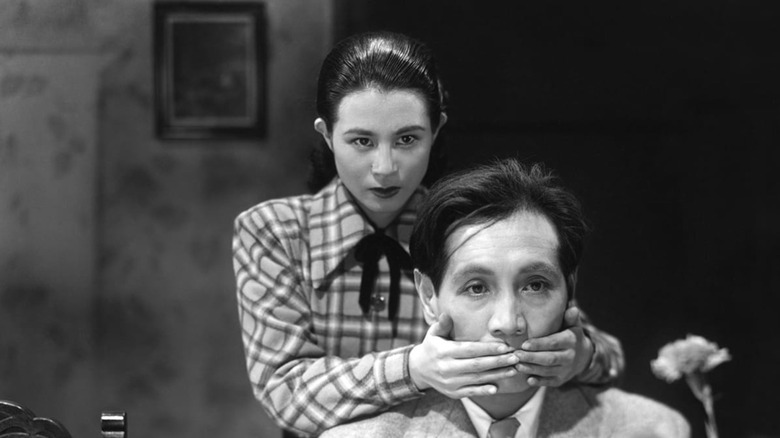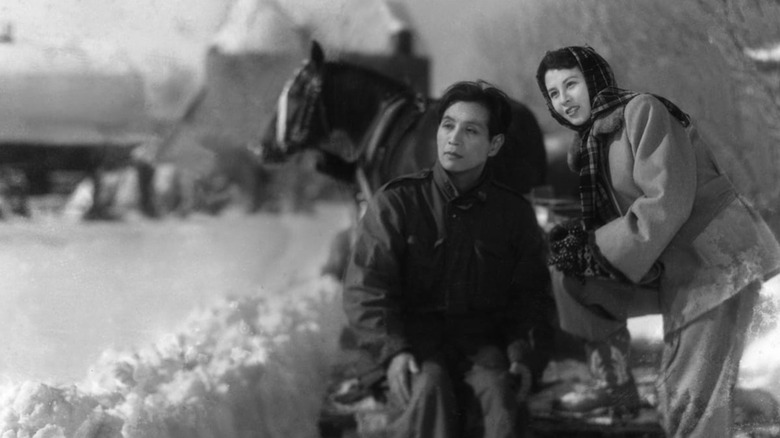Filming The Idiot Made Akira Kurosawa Feel Like He 'Wanted To Die'
Even the greatest filmmakers end up fumbling once or twice. That's simply human nature shining through — nobody is perfect, and thus, no director has a perfect filmography. They may not produce any movies you hate, necessarily, but even your favorite director has movies you think are of lesser quality than others. Take, for instance, legendary auteur Akira Kurosawa, who is often credited as one of the defining directors of cinema.
However, not even he could say that his filmography was flawless. That's because in 1951, he released "The Idiot," an adaptation of the novel of the same name by Fyodor Dostoevsky. In an interview compiled in the book, "Akira Kurosawa: Interviews," he described the making of that movie as troublesome, which isn't a surprise given how it was cut down from a whopping 265 minutes to 100 minutes. Regardless, it sounded like he had a rough go of it with the producers at Shochiku, which produced and distributed the film.
"Making the film was very hard work," Kurosawa recalled. "At times I felt as though I wanted to die. Dostoevsky is heavy enough, and now I was under him — I knew just how those enormous sumo wrestlers feel."
At the time of its release, "The Idiot" got a negative reception from critics and moviegoers alike. Kurosawa recalled in his own book, "Something Like an Autobiography," that the failure of "The Idiot" resulted in another major Japanese studio, Daiei Film, canceling their contract with him.
When one door closes, another opens
That last part is where things really start to get interesting. A year prior to the release of "The Idiot," Kurosawa released "Rashomon" with Daiei, a subversive mystery drama told from several different perspectives. It received positive reviews in Japan, but as far as the director knew, that was really its only market. As it turns out, however, fate worked in a very mysterious way, as detailed in the aforementioned autobiography:
"I arrived home depressed, with barely enough strength to slide open the door to the entry. Suddenly, my wife came bounding out. 'Congratulations!' I was unwittingly indignant: 'For what?' ”Rashomon' has the Grand Prix.' 'Rashomon' had won the Grand Prix at the Venice International Film Festival, and I was spared from having to eat cold rice."
The international recognition of "Rashomon" immediately eclipsed any fallout from "The Idiot." It went on to win the Academy Award for Best International Feature, and just a couple of years later, allowed Kurosawa to release his arguable opus, "Seven Samurai," internationally. If its Rotten Tomatoes page is anything to go by, then "The Idiot" also ended up getting a cultural reevaluation as an ambitious experiment. Despite this, he still credits the initial flop for teaching him an important lesson in filmmaking.
"On thinking it over, I suppose that any director ought at least once to have been roundly attacked and embarrassed," he reminisced in an excerpt from "Akira Kurosawa: Interviews." "One should be brave enough to risk this kind of 'mistake.' Nowadays, no one does."

